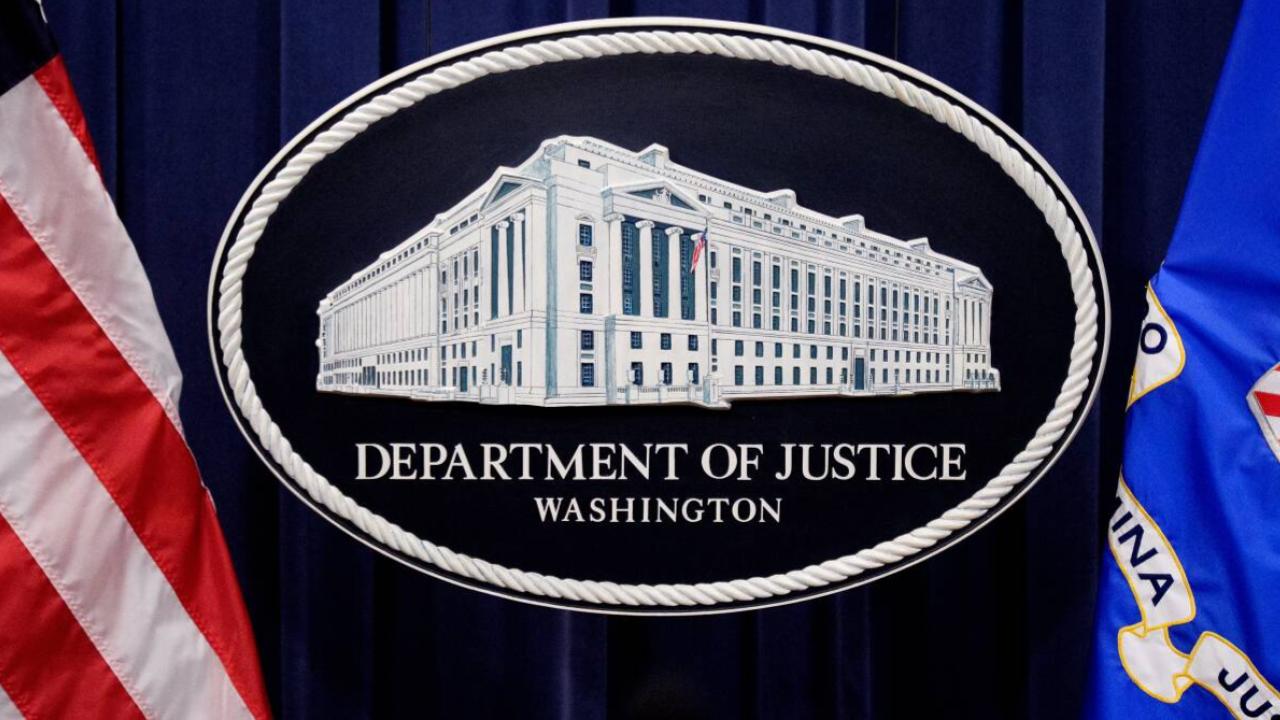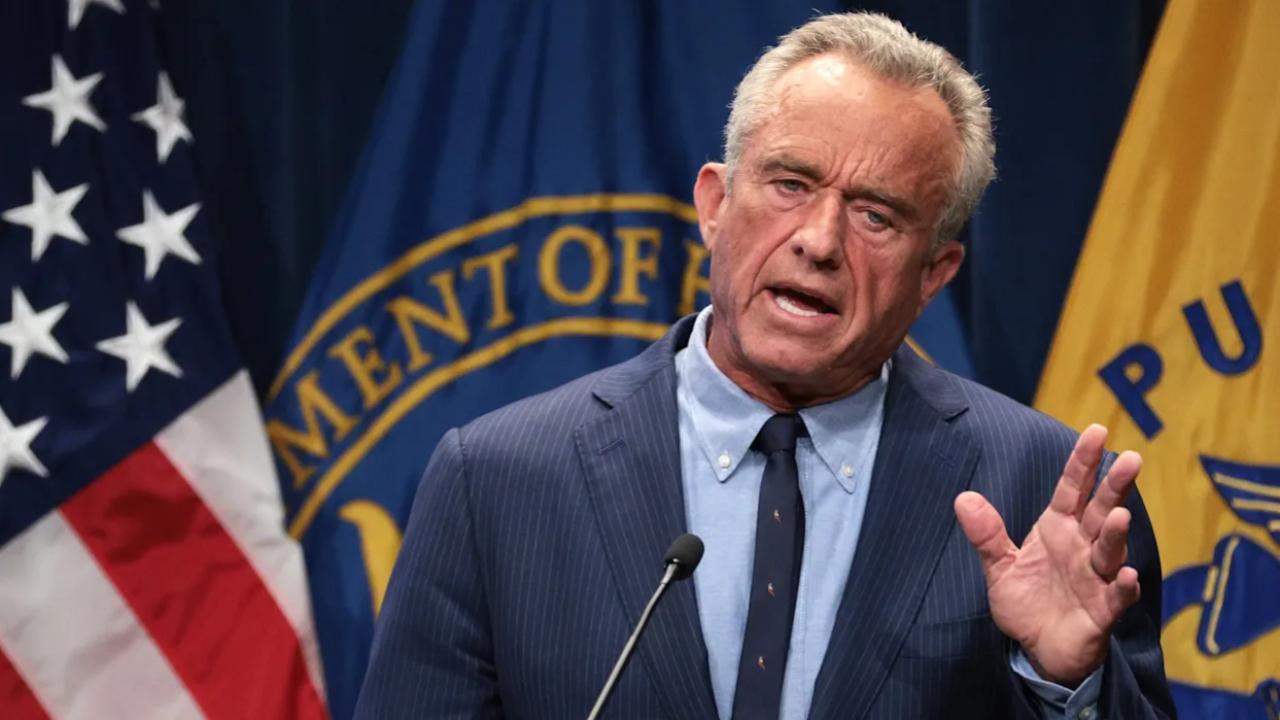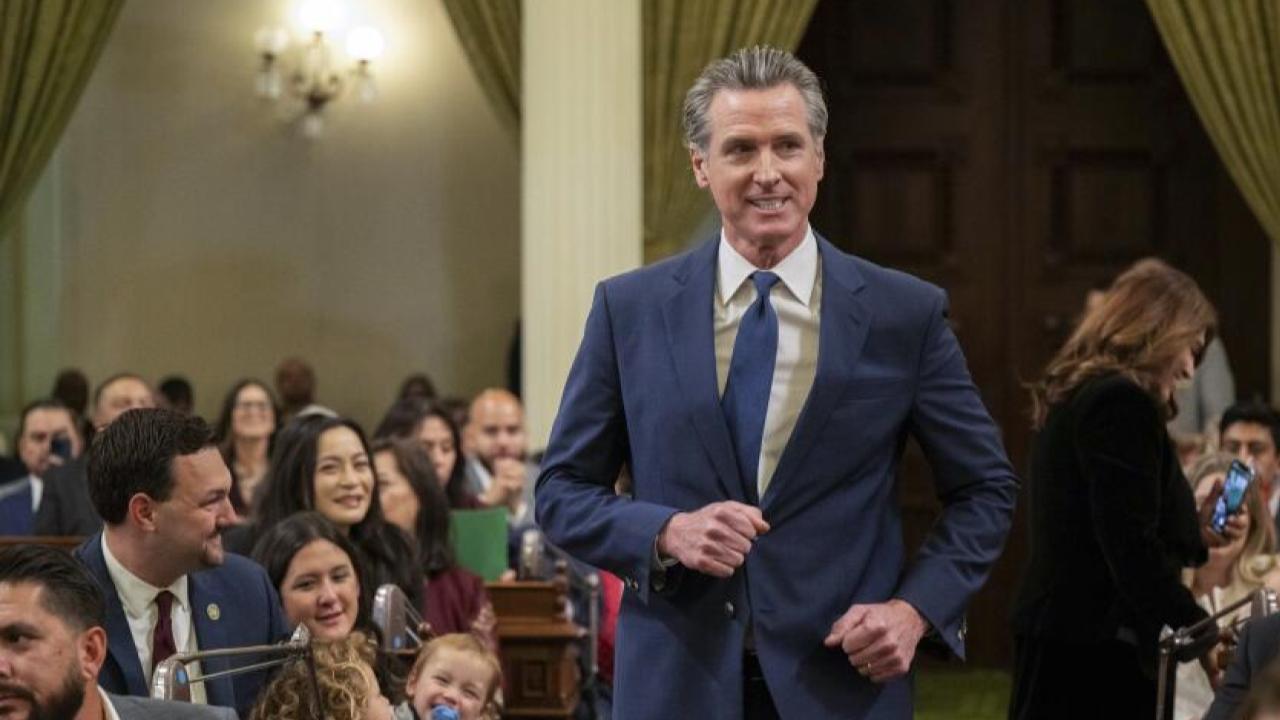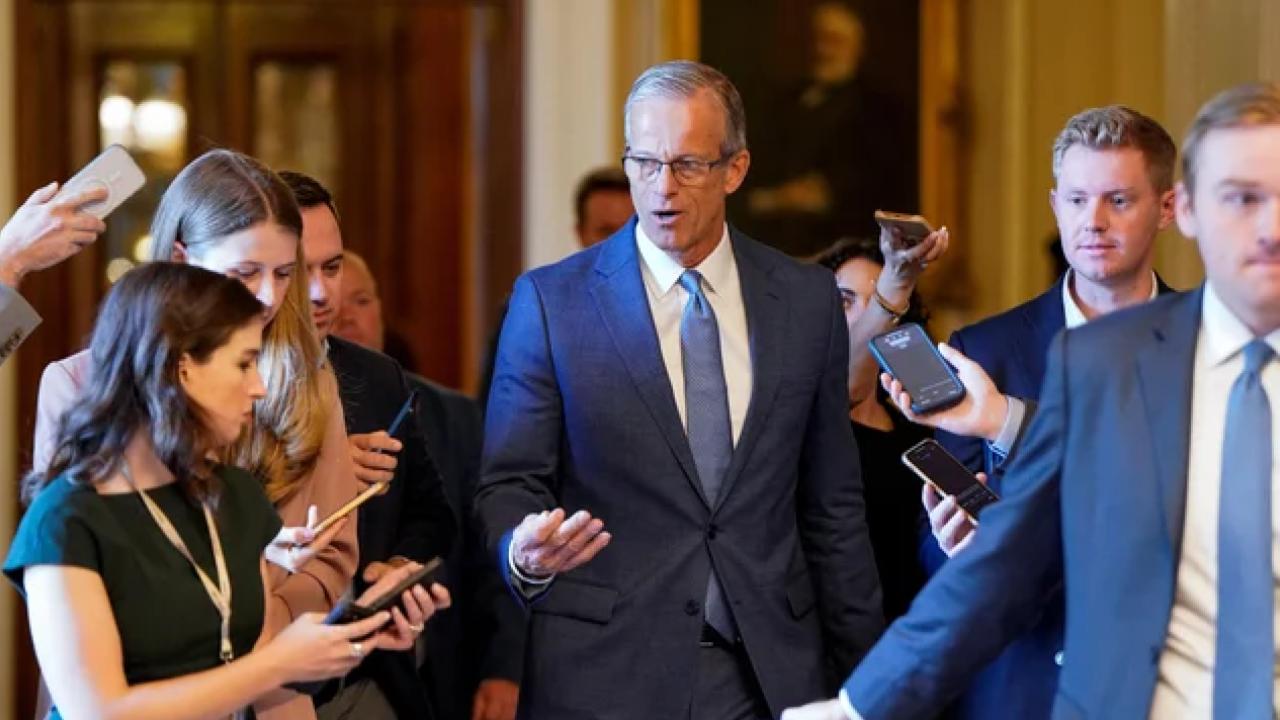The United Arab Emirates (UAE) just made a bold play that’s got the global tech world buzzing. In a surprise twist that’s straight outta the headlines, the UAE has signed a game-changing AI partnership with former U.S. President Donald Trump and key American firms — completely sidelining China, its former tech buddy.
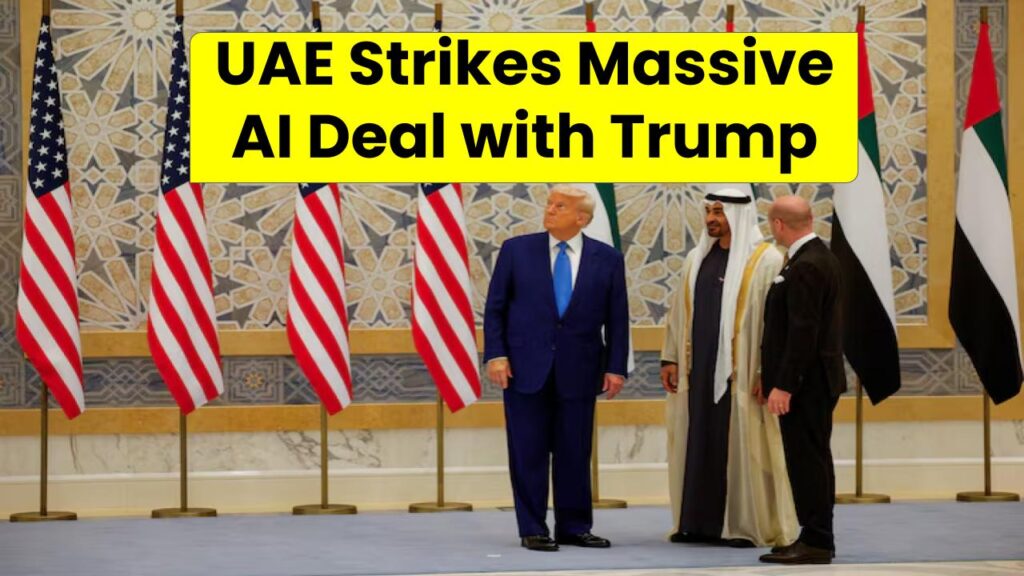
This isn’t just about robots and fancy software. This is about power, money, and who’s going to run the tech show in the next 10 years. From billion-dollar investments to Nvidia chips, this deal is putting the UAE right at the heart of the AI revolution, and the U.S. just secured a major ally in the Middle East.
Let’s unpack what this AI megadeal means for the world, and why it could rewrite the tech rules for years to come.
UAE-Trump AI Deal at a Glance
| Topic | Details |
|---|---|
| Deal Focus | 5-gigawatt AI data center campus in Abu Dhabi |
| AI Chips Access | 500,000 Nvidia AI chips annually from 2025 |
| Strategic Partner | U.S. ex-President Donald Trump & U.S. tech firms |
| China’s Role | Excluded from deal; UAE shifting away from Chinese tech partnerships |
| Investment | $1.4 trillion pledged by UAE to U.S. over 10 years |
| Core Company Involved | G42 (Abu Dhabi-based AI firm) |
The UAE-Trump AI deal is more than just a tech story — it’s a geopolitical milestone. By locking arms with the U.S. and locking out China, the UAE is making a bold bet on its digital future.
And for America? This is a major foreign policy and tech win — wrapped in silicon chips and sealed with international business.
The message is loud and clear: AI is the new oil, and the battle for control is already heating up.
What Exactly Is the UAE-Trump AI Deal?
This isn’t some handshake behind closed doors. The UAE has publicly confirmed a partnership with former President Trump’s business network and top U.S. tech firms. The flagship project? A 5-gigawatt artificial intelligence data center in Abu Dhabi, run by UAE’s homegrown AI powerhouse, G42.
To give you a sense of scale, that’s expected to be the largest AI data hub outside the United States. That’s huge.
And it’s not just bricks and bandwidth. The UAE secured access to 500,000 Nvidia AI chips annually, starting in 2025. These are the same powerful chips fueling OpenAI’s ChatGPT and Google’s Gemini.
Why This Deal Is Such a Big Freakin’ Deal
1. It Sidelines China — Hard
The UAE previously had strong tech ties with China, especially in AI and telecommunications. But under growing U.S. pressure and security concerns, it’s making a strategic pivot. This new deal clearly snubs China, aligning UAE more with American tech and intelligence frameworks.
This is a major shift in global tech alliances, signaling that countries are picking sides in the AI race.
2. It Opens the Floodgates for Investment
According to The Economic Times, the UAE is planning to invest $1.4 trillion in the U.S. over the next decade. That’s not a typo — trillion with a “T”. A big chunk of that is going toward AI, semiconductors, cloud computing, and next-gen tech.
For context, that’s more than the combined GDP of Pakistan and Bangladesh.
3. It Boosts Trump’s Tech Credentials
Love him or hate him, Trump now has a foot back in the international arena, especially in tech — and in a region that holds serious economic and strategic weight. Some see it as a savvy power move as he eyes another presidential run.
Meet G42: The UAE’s AI Star
The Emirati firm G42 is the muscle behind the scenes. Think of them as the OpenAI of the Middle East. The company already has partnerships with Microsoft, AstraZeneca, and even Dell. Now, with this Trump-led U.S. deal, they’re going global.
G42’s role is to build, manage, and scale the Abu Dhabi AI campus. With U.S. backing, G42 can leapfrog into the top-tier of global AI players, possibly rivaling players like Amazon Web Services or even Google Cloud in certain regions.
The China Factor: What Changed?
Here’s the backstory: UAE used to be tight with Chinese firms like Huawei for 5G and data infrastructure. But in 2021, U.S. intelligence flagged risks around potential backdoors and surveillance vulnerabilities.
Then came sanctions. The U.S. started limiting exports of high-end chips to countries or entities working with China.
Now, under this new U.S. partnership, the UAE is basically saying, “Sorry, Beijing — we’re rolling with Washington.”
This is geopolitics wrapped in silicon wafers.
How This Deal Impacts the U.S.
This isn’t just a win for the UAE — it’s also a huge soft power play for the United States. By partnering with UAE:
- The U.S. gains an AI foothold in the Middle East.
- It blocks China from expanding its Belt and Road digital strategy.
- It boosts U.S. tech exports (Nvidia chips, software, cloud).
In return, the UAE gets access to cutting-edge AI tech, which will help diversify its oil-heavy economy.
It’s a clean win-win.
What Comes Next?
The first phase of the AI campus is expected to go live by late 2025. Once operational, it could process exabytes of data, support defense simulations, enable autonomous vehicle development, and even drive biotech innovation in the Gulf.
If successful, it may also influence Saudi Arabia and Qatar to pursue similar U.S.-aligned AI pathways.
What Are the Risks and Challenges?
While the deal sounds golden, there are real concerns:
1. Security Risks
Despite assurances, critics argue the UAE could still leak sensitive tech if it tries to balance U.S. and Chinese partners behind the scenes.
The U.S. has placed guardrails: G42 had to cut some of its ties with Chinese firms to get this deal through.
2. Tech Dependency
UAE’s strategy seems bold — but also risky. By depending too much on U.S. tech (Nvidia, Microsoft, etc.), it might find itself vulnerable to future export bans or political tensions.
What This Means for AI Globally
This deal redefines the tech map. It’s not just Silicon Valley versus Beijing anymore. The Middle East is emerging as a serious AI player, with big pockets, real estate, and ambition.
And with U.S. backing, the UAE may become a model for other nations looking to bet big on AI without leaning into China.
Frequently Asked Questions (FAQs)
Q1: What is the value of the UAE-Trump AI deal?
There’s no single price tag, but the UAE has pledged $1.4 trillion in U.S. investments over the next decade, a large part of which will go toward this AI initiative.
Q2: Why did the UAE drop China in favor of the U.S.?
Due to increasing U.S. pressure over security risks tied to Chinese tech, UAE realigned its AI ambitions with U.S. companies to access Nvidia chips and ensure future-proof tech collaborations.
Q3: Who is G42 and why are they important?
G42 is a leading AI and cloud computing firm based in Abu Dhabi. It’s now spearheading the data center project and has become a critical player in the Middle East’s AI ambitions.
Q4: What’s Trump’s role in this deal?
Though not an official government representative, Trump is acting as a business figurehead, bringing together U.S. tech firms and international investors for strategic collaboration.
Q5: When will the AI data center be operational?
Construction begins in 2025, and early operations may start by late 2025 or early 2026, depending on development speed.

